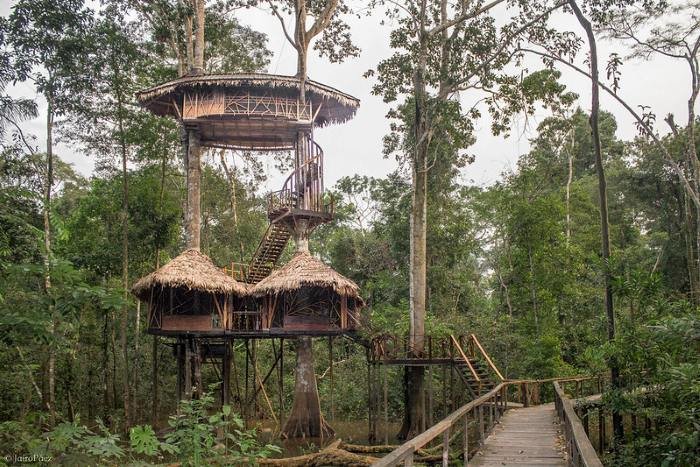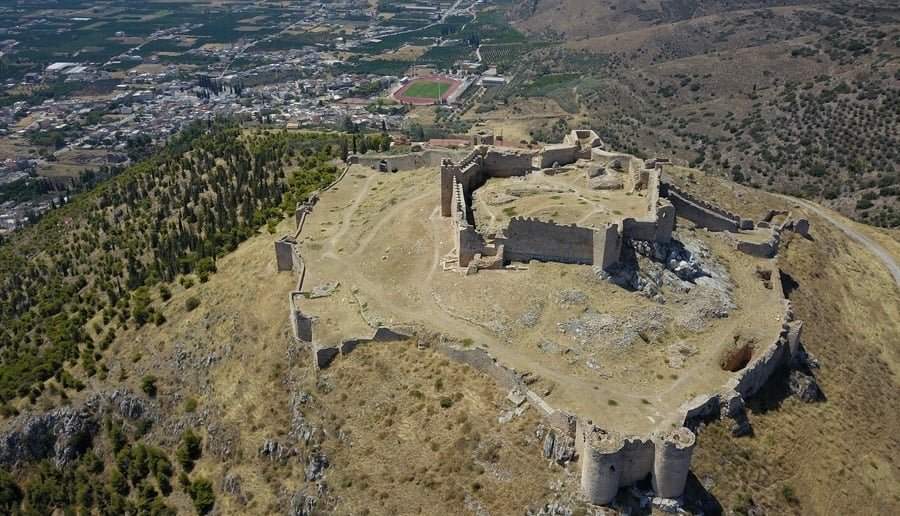
Deep inside Colombia’s Amazon rainforest is a small indigenous community of about 1,300 people, called Macedonia.
Surrounded by its land reserve, its residents live from fishing, hunting and handicrafts. Almost half of them are younger than 18 years, while schools and churches are the only public places.
This is a picturesque community with plenty to see if you take your time. The maloca, a large, traditional communal house used by various indigenous groups in the Amazon rainforest, contains many beautiful examples of fiber art, and as you walk around town you will very likely encounter someone working on their handcrafts, especially woodworking.
The community performs a traditional dance nearly every day in one of two malocas. Artisans fill small booths around the perimeter of the dance space. The community is known for its chambira and seed accessories, as well as beautiful kitchen spoons, completely handmade.
There are numerous rustic boardwalks and a newer bridge that provide views into the interior of the community and the landscape. There is a pier overlooking the river. Macedonia is near very good dolphin-viewing waters.
The ancient Greek kingdom of Macedonia
The ancient Greek kingdom of Macedonia, located in the northern part of Greece, rose to prominence under King Philip II and his son, Alexander the Great. Known for uniting the Greek city-states and creating one of the largest empires in history, Alexander’s conquests stretched from Greece to Egypt, Persia, and into India.
His achievements included spreading Greek culture across vast regions, founding numerous cities, and influencing the course of history through military brilliance, such as the famous battles of Granicus, Issus, and Gaugamela. His empire marked the beginning of the Hellenistic Era.
Why the name Macedonia in Colombia?
There are conflicting accounts of when Macedonia was established and the reason it got its name.
Some say that the village was established in the 19th century by a family whose last name was Makedo, who belonged to the Ticuna tribe.
It is an indigenous tribe of the Amazon rainforest, primarily living along the Amazon River and its tributaries in the border regions of Colombia, Brazil and Peru. They are one of the largest indigenous groups in the Amazon, with an estimated population of around 50,000 to 60,000 people.
The Ticuna language is a language isolate, meaning it has no known linguistic relatives. This uniqueness reflects their ancient and distinct cultural heritage.
Another theory is the name Macedonia was chosen following interactions between indigenous communities and missionaries or settlers.
European missionaries, particularly from Catholic orders, often named settlements in newly colonized areas after biblical, classical or European historical references.
The name “Macedonia” could have been chosen by missionaries inspired by the ancient kingdom of Macedonia in Greece, which holds significance in Christian history due to the travels of St. Paul, who preached in Macedonia (as described in the New Testament).
Naming places with European or biblical references was common practice as part of efforts to “Christianize” indigenous peoples.
During colonial and post-colonial periods, authorities in Colombia often adopted European names for towns, villages and regions, to reflect cultural aspirations or affiliations. Naming a village “Macedonia” could have been part of this broader trend.
Related: Venezuela’s New Sparta, a Gem of the Caribbean


